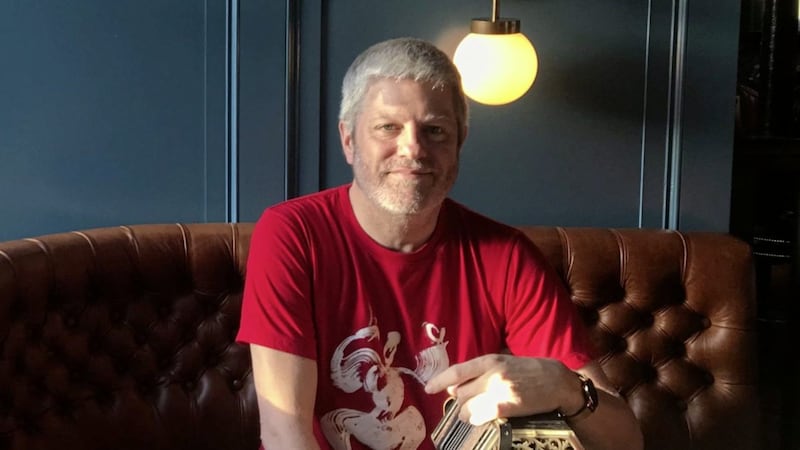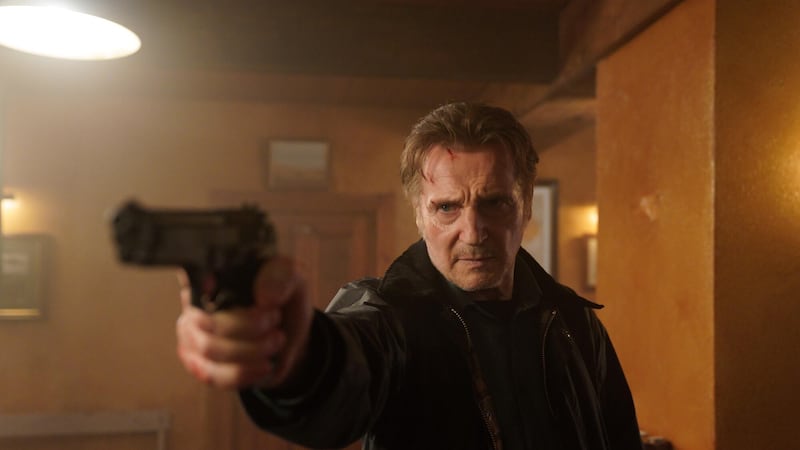IMAGINE being arrested or even killed for absent-mindedly tapping a rhythm on a table – whether you're at home or in a café. Imagine how being a musician could likely lead to jail where even children could be summarily executed. Imagine living in fear that your neighbours could report you for singing to your children or dancing, or for making a musical instrument.
That was the fate of Cambodian artists between 1975 and 1979 when the Khmer Rouge under Pol Pot set about a genocide that is hard to comprehend even today. Although they had been active since the early 1960s, it was during these four years of Khmer Rouge brutality that an estimated two million people were killed or died of starvation – about a quarter of the population.
The power of music and song was well understood by the regime who set out to destroy the creative energy of the people and replaced their ancient culture with propaganda songs aimed at implanting the "proper political consciousness" and making them better, more effective workers in the new revolutionary society.
It is thought that an estimated 90 per cent of Cambodia's musicians, dancers, teachers and instrument makers were killed during that time of terror and one consequence of this was that the passing on of songs and melodies to new generations that we know so well in Irish traditional music ceased.
The terror gone and the musical life of the country being rebuilt, it's little wonder then that concertina player Jason O'Rourke would jump at the opportunity to play with some Cambodian musicians after being invited to Southeast Asia.
Jason is well-known throughout Ireland as one of our finest concertina players – after being a rock drummer for a number of years – but like so many tradheads, he was always open to the new and the exotic.
"We were lucky in Belfast in having the likes of Hugh Masakela and Ladysmith Black Mambazo come here and Jean Michel Veillon was a regular visitor, so Breton music would have been one of my earliest introductions to non-Irish traditional music," he recalls.
"The way the notes fall in Breton music is different, the rhythms are different and the phrasing is different because the Bretons have a different structure of dancing to ours and I found all this fascinating."
So was this an early form of 'fusion?' I ask.
"Not really," says Jason.
"The two types of music weren't being melded together but musicians would play the styles of the other, so it wasn't 'fusion' as such but when I was invited to Cambodia to play with Khmer musicians to compose new stuff, I think that would quality as fusion because we were mixing influences from the two cultures to create something new and that was really enjoyable," he smiles.
For years, Jason has been going to Womex, the international market of world music and it was there he met Amitava Bhattacharya from Bangla Natak, a large influential organisation which sets out to empower musicians in rural west Bengal. During the winter, it also hosts international musicians to collaborate with local traditional musicians and Jason and his band Madagán were part of that adventure.
"We arrived in this village in the middle of nowhere, to a venue which Bangla Natak had built to house a theatre company with beautiful trees and thatched huts around it, which is where we stayed while all kinds of wildlife walked about," Jason recalls.
However there was a lot of work involved too as the Irish and Bengalis sat down to try and work out something that would work musically – and with a deadline just four days before they were to give a live concert.
"We had to work out what kind of keys we would use, what kind of rhythms and not only that, the Indians were using instruments I can't name even now and they had very little English – but we managed it. Cue the old cliché, that music is a universal language," says Jason.
Another trip to the geographical and musical unknown happened last year when Jason and Madagán went to Goa in the Indian Ocean to collaborate with local singer Divya Naik, again through Bangla Natak. The idea was to produce an album of Goan and Irish music and, after a huge amount of working hours, that was achieved with Madagoan (geddit?), an album of seven songs including, believe it or not, a version of the Irish song Gleanntáin Ghlas' Ghaoth Dobhair.
Four of the songs were premiered at Bangla Natak's flagship world peace festival, Sur Jahan, in February last year. Many people have been and more people would love to be able to go to Siem Reap in Cambodia and to see the astonishing temples at Angkor Wat.
Jason realises how lucky he was to have the chance to make music in the Hindu temple complex, the largest religious monument in the world. He had been invited by an organisaton called Cambodia Living Arts, founded by Arn Chorn-Pond, a survivor of the Khmer Rouge regime.
If you want to hear Arn's heartbreaking story, go to bit.ly/2P8sF6B – but for Jason the trip was a real joy.
"Playing at Angkor Wat, it was fabulous walking past these temples and listening to the monks praying," Jason recalls.
"I played with two brothers, one of whom played a one-string instrument called a kse diev which dates back 1,000 years. I was taken to meet their father, Menn Man, who had also survived the killing fields of Cambodia and I interviewed him about music and what it was like to be a musician in such horrific times because as a musician I would find it very hard not to play music.
"He told me he was a Farren but that at the time he couldn't even think of music in case he tapped a melody on a table, that you couldn't go off into the jungle to quietly play there in case someone would hear you and renounce you – so you wouldn't even think about music."
As a result of that, a lot of the traditional repertoire has been lost to amnesia. As Irish trad musicians know, the transmission of music and cultural knowledge to the next generation is of vital importance, yet we still take traditional music for granted in many ways.
Now, Jason would like to repay the compliment and bring musicians from other cultures to Belfast.
"It's not just about the music," he says.
"It's about whole new cultures and when you're exposed to that, you grow as a musician but you also grow as a person."








